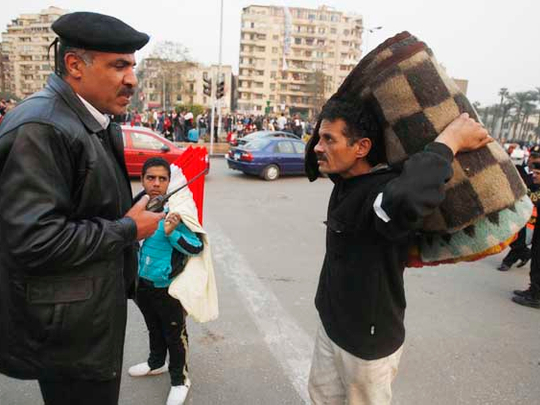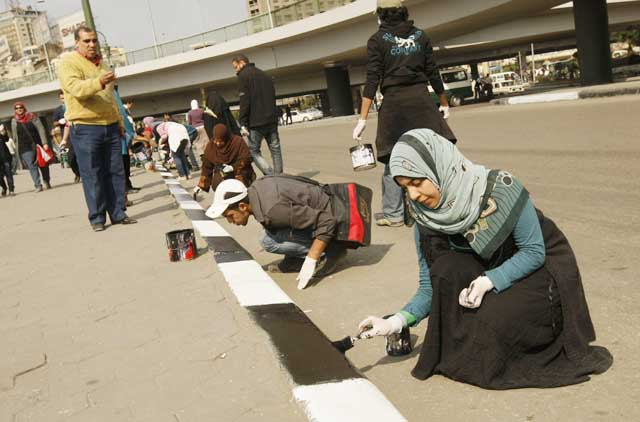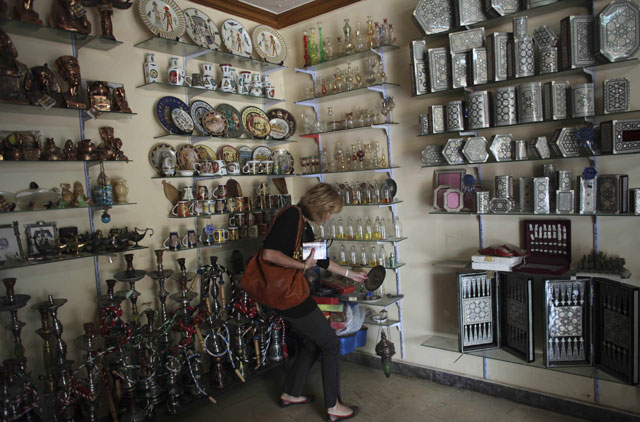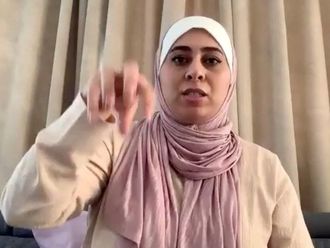
Cairo: Egypt's new military rulers said on Tuesday they hoped to hand power over to an elected civilian leadership within six months and insisted they had no desire to keep control following the overthrow of President Hosni Mubarak.
"The Higher Military Council expressed its hope to hand over power within six months to a civilian authority and a president elected in a peaceful and free manner that expresses the views of the people," a statement on the state news agency Mena said.
"The council affirmed that it does not seek power, that the current situation was imposed on the armed forces and that they have the confidence of the people," it said.
Mena said the military also decreed that a committee should finish its work within 10 days on drafting amendments to the constitution. The plan is to then put these to a referendum.
A member of a committee to amend the constitution said the new document will be only temporary until democratic rule is established.
Subhy Salem, a legal expert and a member of Muslim Brotherhood, said on Tuesday that radical changes were not planned and that restrictions on freedoms would be removed.
Salem's appointment to the committee suggests the military may be willing to legitimise the Brotherhood, nearly six decades after it was banned.
Calls for aid
Foreign Minister Ahmad Abul Gheit on Tuesday called on the international community to help speed Egypt's economic recovery after a revolt that toppled president Hosni Mubarak.
The top diplomat - a member of a caretaker cabinet that military rulers have said will serve until a new government is formed following free elections - also reaffirmed Cairo's support for the Palestinians.
Abul Gheit has called on "international parties to provide aid to the Egyptian economy, which has been severely affected by the political crisis that has shaken the country," his ministry said in a statement.
His remarks came after a wave of strikes threatened to paralyse the country in the wake of Mubarak's fall, prompting the military leadership to urge against - though not prohibit - further protests and civil disobedience.
Abul Gheit also "emphasised that Egypt remains close to the Palestinian cause and continues to support the rights of the Palestinian people," including the pursuit of a UN Security Council resolution to freeze Israeli settlements.
The Supreme Council of the Armed Forces soothed fears in Israel and Washington when it said on Saturday that it would abide by all Egypt's international treaties, including the landmark 1979 peace deal with Israel.
Abul Gheit's remarks came after he spoke to his US, British and Saudi counterparts, as well as Palestinian president Mahmud Abbas.
The military council has set a six-month timetable for democratic elections and vowed to hand power over to a civilian government in line with the demands of the protesters who drove Mubarak from power after a 30-year reign.
With inputs from AFP















